- Home
- Daphne Du Maurier
The Birds and Other Stories Page 6
The Birds and Other Stories Read online
Page 6
As I grow older--nearly seventy, as I have said, and memory shortens with the lengthening years--the story of Monte Verita becomes more dim to me, and more improbable, and because of this I have a great urge to write it down before memory fails me altogether. It may be that someone reading it will have the love of mountains that I had once, and so bring his own understanding to the tale, his own interpretation.
One word of warning. There are many mountain peaks in Europe, and countless numbers may bear the name of Monte Verita. They can be found in Switzerland, in France, in Spain, in Italy, in the Tyrol. I prefer to give no precise locality to mine. In these days, after two world wars, no mountain seems inaccessible. All can be climbed. None, with due caution, need be dangerous. My Monte Verita was never shunned because of difficulties of height, of ice and snow. The track leading to the summit could be followed by anyone of sure and certain step, even in late autumn. No common danger kept the climber back, but awe and fear.
I have little doubt that today my Monte Verita has been plotted upon the map with all the others. There may be resting camps near the summit, even a hotel in the little village on the eastern slopes, and the tourist lifted to the twin peaks by electric cable. Even so, I like to think there can be no final desecration, that at midnight, when the full moon rises, the mountain face is still inviolate, unchanged, and that in winter, when snow and ice, great wind and drifting cloud make the climb impassable to man, the rock face of Monte Verita, her twin peaks lifted to the sun, stares down in silence and compassion upon a blinded world.
We were boys together, Victor and I. We were both at Marlborough, and went up to Cambridge the same year. In those days I was his greatest friend, and if we did not see so much of each other after we left the Varsity it was only because we moved in rather different worlds: my work took me much abroad, while he was busily employed running his own estate up in Shropshire. When we saw each other, we resumed our friendship without any sense of having grown apart.
My work was absorbing, so was his; but we had money enough, and leisure too, to indulge in our favorite pastime, which was climbing. The modern expert, with his equipment and his scientific training, would think our expeditions amateur in the extreme--I am talking of the idyllic days before the First World War--and, looking back on them, I suppose they were just that. Certainly there was nothing professional about the two young men who used to cling with the hands and feet to those projecting rocks in Cumberland and Wales, and later, when some experience was gained, tried the more hazardous ascents in southern Europe.
In time we became less foolhardy and more weather-wise, and learned to treat our mountains with respect--not as an enemy to be conquered, but as an ally to be won. We used to climb, Victor and I, from no desire for danger or because we wanted to add mountain peaks to our repertoire of achievement. We climbed from desire, because we loved the thing we won.
The moods of a mountain can be more varying, more swiftly changing, than any woman's, bringing joy, and fear, and also great repose. The urge to climb will never be explained. In olden days, perhaps, it was a wish to reach the stars. Today, anyone so minded can buy a seat on a plane and feel himself master of the skies. Even so, he will not have rock under his feet, or air upon his face; nor will he know the silence that comes only on the hills.
The best hours of my life were spent, when I was young, upon the mountains. That urge to spill all energy, all thought, to be as nothing, blotted against the sky--we called it mountain fever, Victor and I. He used to recover from the experience more quickly than I did. He would look about him, methodical, careful, planning the descent, while I was lost in wonder, locked in a dream I could not understand. Endurance had been tested, the summit was ours, but something indefinable waited to be won. Always it was denied to me, the experience I desired, and something seemed to tell me the fault was in myself. But they were good days. The finest I have known...
One summer, shortly after I returned to London from a business trip to Canada, a letter arrived from Victor, written in tremendous spirits. He was engaged to be married. He was, in fact, to be married very soon. She was the loveliest girl he had ever seen, and would I be his best man? I wrote back, as one does on these occasions, expressing myself delighted and wishing him all the happiness in the world. A confirmed bachelor myself, I considered him yet another good friend lost, the best of all, bogged down in domesticity.
The bride-to-be was Welsh and lived just over the border from Victor's place in Shropshire. "And would you believe it," said Victor in a second letter, "she has never as much as set foot on Snowdon! I am going to take her education in hand." I could imagine nothing I should dislike more than trailing an inexperienced girl after me on any mountain.
A third letter announced Victor's arrival in London, and hers too, in all the bustle and preparation of the wedding. I invited both of them to luncheon. I don't know what I expected. Someone small, I think, and dark and stocky, with handsome eyes. Certainly not the beauty that came forward, putting out her hand to me and saying, "I am Anna."
In those days, before the First World War, young women did not use makeup. Anna was free of lipstick, and her gold hair was rolled in great coils over her ears. I remember staring at her, at her incredible beauty, and Victor laughed, very pleased, and said, "What did I tell you?" We sat down to lunch, and the three of us were soon at ease and chatting comfortably. A certain reserve was part of her charm, but because she knew I was Victor's greatest friend I felt myself accepted, and liked into the bargain.
Victor certainly was lucky, I said to myself, and any doubt I might have felt about the marriage went on sight of her. Inevitably, with Victor and myself, the conversation turned to mountains, and to climbing, before lunch was halfway through.
"So you are going to marry a man whose hobby is climbing mountains," I said to her, "and you've never even gone up your own Snowdon."
"No," she said, "no, I never have."
Some hesitation in her voice made me wonder. A little frown had come between those two very perfect eyes.
"Why?" I asked. "It's almost criminal to be Welsh, and know nothing of your highest mountain."
Victor interrupted. "Anna is scared," he said. "Every time I suggest an expedition she thinks out an excuse."
She turned to him swiftly. "No, Victor," she said, "it's not that. You just don't understand. I'm not afraid of climbing."
"What is it, then?" he said.
He put out his hand and held hers on the table. I could see how devoted he was to her, and how happy they were likely to become. She looked across at me, feeling me, as it were, with her eyes, and suddenly I knew instinctively what she was going to say.
"Mountains are very demanding," she said. "You have to give everything. It's wiser, for someone like myself, to keep away."
I understood what she meant, at least I thought then that I did; but because Victor was in love with her, and she was in love with him, it seemed to me that nothing could be better than the fact that they might share the same hobby, once her initial awe was overcome.
"But that's splendid," I said, "you've got just the right approach to mountain climbing. Of course you have to give everything, but together you can achieve that. Victor won't let you attempt anything beyond you. He's more cautious than I am."
Anna smiled, and then withdrew her hand from Victor's on the table.
"You are both very obstinate," she said, "and you neither of you understand. I was born in the hills. I know what I mean."
And then some mutual friend of Victor's and my own came up to the table to be introduced, and there was no more talk of mountains.
They were married about six weeks later, and I have never seen a lovelier bride than Anna. Victor was pale with nerves, I remember well, and I thought what a responsibility lay on his shoulders, to make this girl happy for all time.
I saw much of her during the six weeks of their engagement, and, though Victor never realized it for one instant, came to love her as much as he di
d. It was not her natural charm, nor yet her beauty, but a strange blending of both, a kind of inner radiance, that drew me to her. My only fear for their future was that Victor might be a little too boisterous, too lighthearted and cheerful--his was a very open, simple nature--and that she might withdraw into herself because of it. Certainly they made a handsome pair as they drove off after the reception--given by an elderly aunt of Anna's, for her parents were dead--and I sentimentally looked forward to staying with them in Shropshire, and being godfather to the first child.
Business took me away shortly after the wedding, and it was not until the following December that I heard from Victor, asking me down for Christmas. I accepted gladly.
They had then been married about eight months. Victor looked fit and very happy, and Anna, it seemed to me, more beautiful than ever. It was hard to take my eyes off her. They gave me a great welcome, and I settled down to a peaceful week in Victor's fine old home, which I knew well from previous visits. The marriage was almost definitely a success, that I could tell from the first. And if there appeared to be no heir on the way, there was plenty of time for that.
We walked about the estate, shot a little, read in the evenings, and were a most contented trio.
I noticed that Victor had adapted himself to Anna's quieter personality, though quiet, perhaps, is hardly the right definition for her gift of stillness. This stillness--for there is no other word for it--came from some depth within her and put a spell upon the whole house. It had always been a pleasant place in which to stay, with its lofty rambling rooms and mullioned windows; but now the peaceful atmosphere was somehow intensified and deepened, and it was as though every room had become impregnated with a strange brooding silence, to my mind quite remarkable, and much more than merely restful, as it had been before.
It is odd, but looking back to that Christmas week I can recollect nothing of the traditional festivity itself. I don't remember what we ate or drank, or whether we set foot inside the church, which surely we must have done, with Victor as the local squire. I can only remember the quite indescribable peace of the evenings, when the shutters had been fastened and we sat before the fire in the great hall. My business trip must have tired me more than I realized, for sitting there, in Victor and Anna's home, I had no desire to do anything but relax and give myself up to this blessed, healing silence.
The other change that had come upon the house, which I did not fully take in until I had been there a few days, was that it was much barer than it had been before. The multiple odds and ends, and the collection of furniture handed down from Victor's forebears, seemed to have disappeared. The big rooms were now sparse and the great hall, where we sat, had nothing in it but a long refectory table and the chairs before the open fire. It seemed very right that it should be so, yet, thinking about it, it was an odd change for a woman to make. The usual habit of a bride is to buy new curtains and carpets, to bring the feminine touch into a bachelor house. I ventured to remark upon it to Victor.
"Oh yes," he said, looking about him vaguely, "we have cleared out a lot of stuff. It was Anna's idea. She doesn't believe in possessions, you know. No, we didn't have a sale, or anything like that. We gave them all away."
The spare room allotted to me was the one I had always used in the past, and this was pretty much as it had been before. And I had the same old comforts--cans of hot water, early tea, biscuits by my bed, cigarette box filled, all the touches of a thoughtful hostess.
Yet once, passing down the long corridor to the stair-head, I noticed that the door of Anna's room, which was usually closed, was open; and knowing it to have been Victor's mother's room in former days, with a fine old four-poster bed and several pieces of heavy solid furniture, all in keeping with the style of the house, ordinary curiosity made me glance over my shoulder as I passed the open door. The room was bare of furniture. There were no curtains to the windows, and no carpet on the floor. The wooden boards were plain. There was a table and a chair, and a long trestle bed with no covering upon it but a blanket. The windows were wide open to the dusk, which was then falling. I turned away and walked down the stairs, and as I did so came face to face with Victor, who was ascending. He must have seen me glance into the room and I did not wish to appear furtive in any way.
"Forgive the trespass," I said, "but I happened to notice the room looked very different from your mother's day."
"Yes," he said briefly, "Anna hates frills. Are you ready for dinner? She sent me to find you."
And we went downstairs together without further conversation. Somehow I could not forget that bare, sparse bedroom, comparing it with the soft luxury of my own, and I felt oddly inferior that Anna should consider me as someone who could not dispense with ease and elegance, which she, for some reason, did so well without.
That evening I watched her as we sat beside the fire. Victor had been called from the hall on some business, and she and I were alone for a few moments. As usual I felt the still, soothing peace of her presence come upon me with the silence; I was wrapped about with it, enfolded, as it were, and it was unlike anything I knew in my ordinary humdrum life; this stillness came out of her, yet from another world. I wanted to tell her about it but could not find the words. At last I said, "You have done something to this house. I don't understand it."
"Don't you?" she said. "I think you do. We are both in search of the same thing, after all."
For some reason I felt afraid. The stillness was with us just the same, but intensified, almost overpowering.
"I am not aware," I said, "that I am in search of anything."
My words fell foolishly on the air and were lost. My eyes, that had drifted to the fire, were drawn, as if compelled, to hers.
"Aren't you?" she said.
I remember being swept by a feeling of profound distress. I saw myself, for the first time, as a very worthless, very trivial human being, traveling here and there about the world to no purpose, doing unnecessary business with other human beings as worthless as myself, and to no other end but that we should be fed and clothed and housed in adequate comfort until death.
I thought of my own small house in Westminster, chosen after long deliberation and furnished with great care. I saw my books, my pictures, my collection of china, and the two good servants who waited upon me and kept the house spotless always, in preparation for my return. Up to this moment my house and all it held had given me great pleasure. Now I was not sure that it had any value.
"What would you suggest?" I heard myself saying to Anna. "Should I sell everything I have and give up my work? What then?"
Thinking back on the brief conversation that passed between us, nothing that she said warranted this sudden question on my part. She implied that I was in search of something, and instead of answering her directly, yes or no, I asked her if I must give up all I had? The significance of this did not strike me at the time. All I knew then was that I was profoundly moved, and whereas a few moments before I had been at peace, I was now troubled.
"Your answer may not be the same as mine," she said, "and anyway, I am not certain of my own, as yet. One day I shall know."
Surely, I thought to myself in looking upon her, she has the answer now, with her beauty, her serenity, her understanding. What more can she possibly achieve, unless it is that up to the present she lacks children, and so feels unfulfilled?
Victor came back into the hall, and it seemed to me his presence brought solidity and warmth to the atmosphere; there was something familiar and comfortable about his old smoking jacket worn with his evening trousers.
"It's freezing hard," he said. "I went outside to see. The thermometer is down to thirty. Lovely night, though. Full moon." He drew up his chair before the fire and smiled affectionately at Anna. "Almost as cold as the night we spent on Snowdon," he said. "Heavens above, I shan't forget that in a hurry." And turning to me with a laugh he added, "I never told you, did I, that Anna condescended to come climbing with me after all?"
"No," I said, a
stonished. "I thought she had set herself against it."
I looked across at Anna, and I noticed that her eyes had grown strangely blank, without expression. I felt instinctively that the subject brought up by Victor was one she would not have chosen. Victor, insensitive to this, went prattling on.
"She's a dark horse," he said. "She knows just as much about climbing mountains as you or I. In fact, she was ahead of me the whole time, and I lost her."
He continued, half laughing, half serious, giving me every detail of the climb, which seemed hazardous in the extreme, as they had left it much too late in the year.
It seemed that the weather, which had promised well in the morning for their start, had turned by midafternoon, bringing thunder and lightning and finally a blizzard; so that darkness overtook them in the descent, and they were forced to spend the night in the open.
"The thing I shall never understand," said Victor, "is how I came to miss her. One moment she was by my side, and the next she had gone. I can tell you I had a very bad three hours, in pitch darkness and half a gale."
Anna never said a word while he told the story. It was as though she withdrew herself completely. She sat in her chair, motionless. I felt uneasy, anxious. I wanted Victor to stop.
"Anyway," I said, to hasten him, "you got down all right, and none the worse for it."
"Yes," he said ruefully, "at about five in the morning, thoroughly wet and thoroughly frightened. Anna came up to me out of the mist not even damp, surprised that I was angry. Said she had been sheltered by a piece of rock. It was a wonder she had not broken her neck. Next time we go mountain climbing, I've told her that she can be the guide."

 Jamaica Inn
Jamaica Inn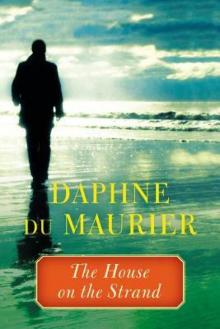 The House on the Strand
The House on the Strand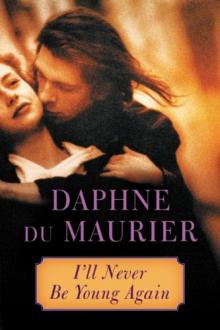 I'll Never Be Young Again
I'll Never Be Young Again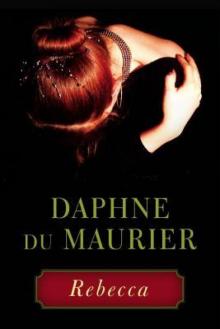 Rebecca
Rebecca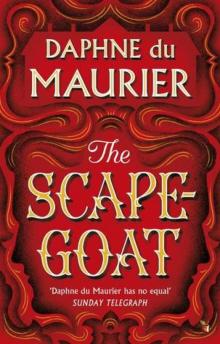 The Scapegoat
The Scapegoat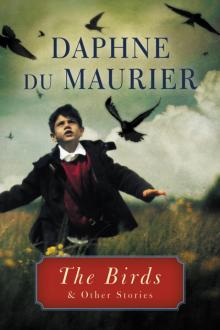 The Birds and Other Stories
The Birds and Other Stories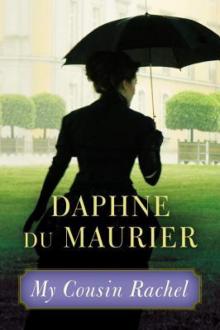 My Cousin Rachel
My Cousin Rachel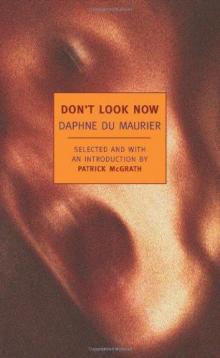 Don't Look Now
Don't Look Now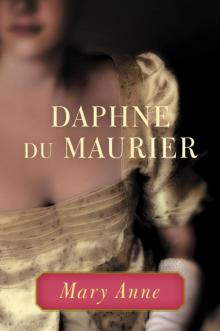 Mary Anne
Mary Anne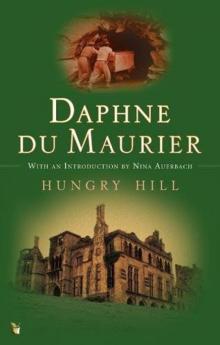 Hungry Hill
Hungry Hill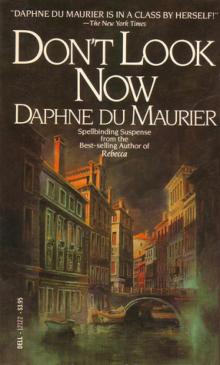 Don't Look Now and Other Stories
Don't Look Now and Other Stories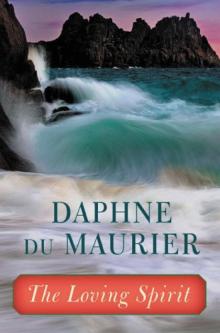 The Loving Spirit
The Loving Spirit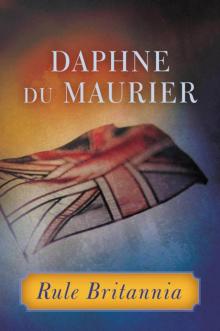 Rule Britannia
Rule Britannia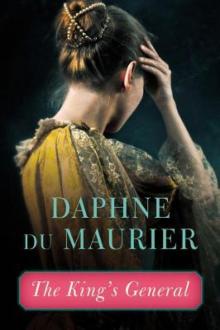 The King's General
The King's General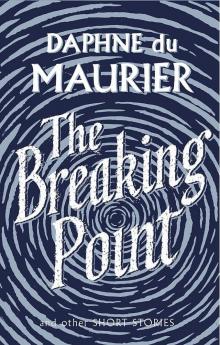 The Breaking Point: Short Stories
The Breaking Point: Short Stories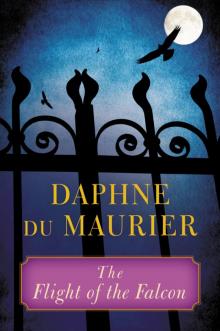 The Flight of the Falcon
The Flight of the Falcon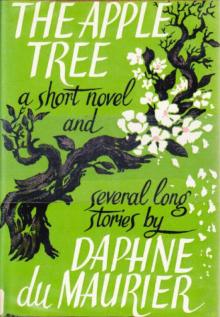 The Apple Tree: a short novel & several long stories
The Apple Tree: a short novel & several long stories The Breaking Point
The Breaking Point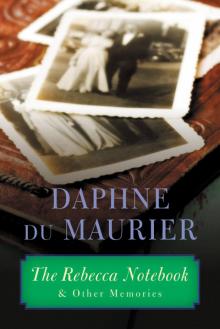 The Rebecca Notebook
The Rebecca Notebook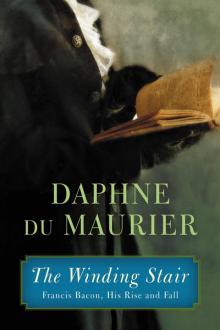 The Winding Stair: Francis Bacon, His Rise and Fall
The Winding Stair: Francis Bacon, His Rise and Fall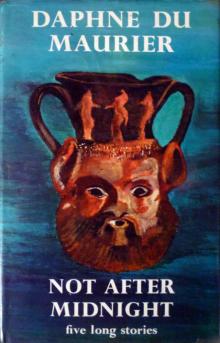 Not After Midnight & Other Stories
Not After Midnight & Other Stories The Doll
The Doll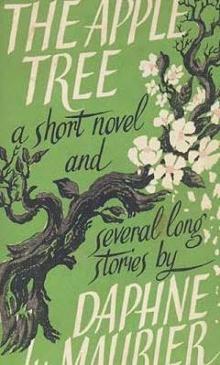 The Apple Tree
The Apple Tree